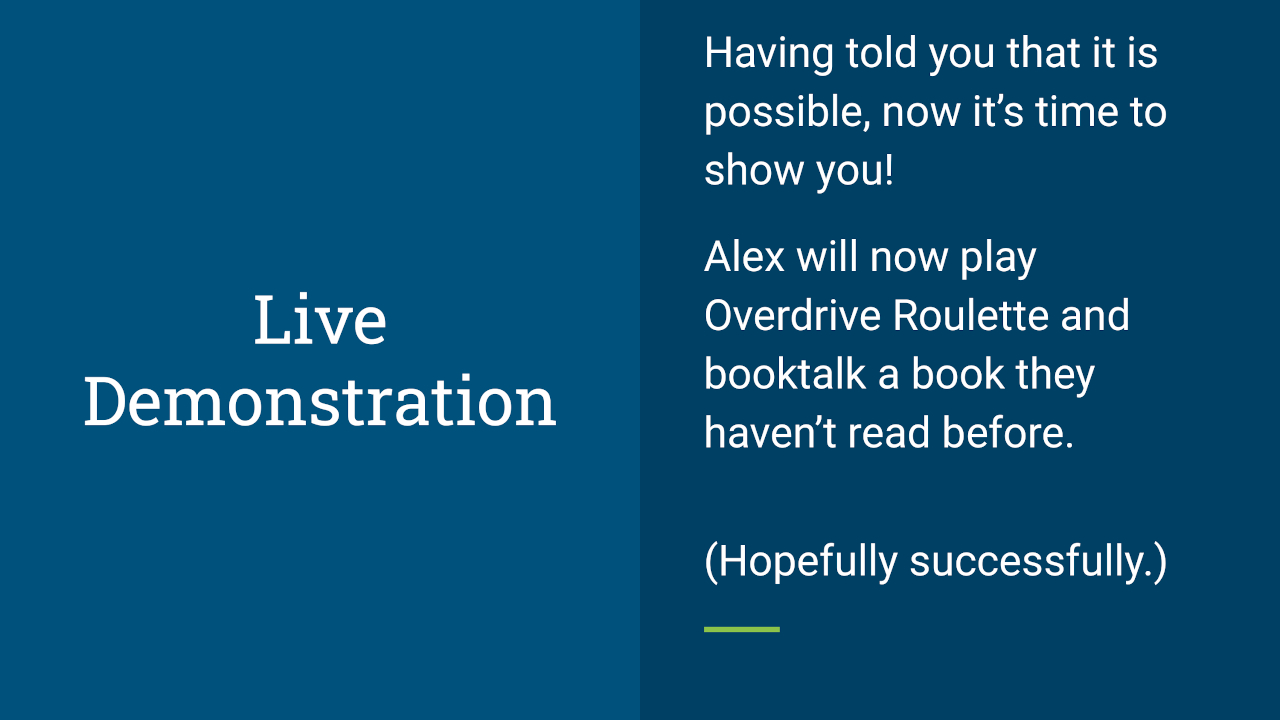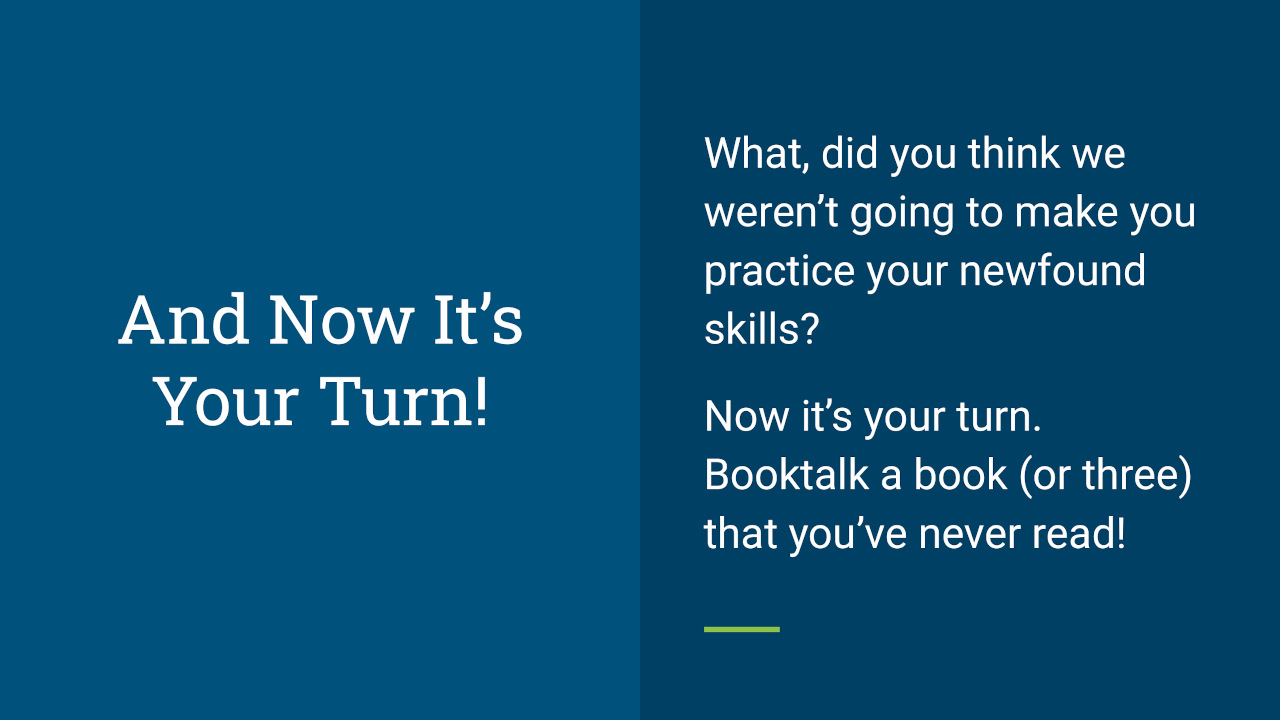
An immdediate way of putting this knowledge to work and to give you practice about booktalking books that appear at random is, if your library system has Overdrive, like mine does, navigate to your Overdrive page, and at the bottom of the main page, there should be a link to check out what's being checked out right now. The dashboard page for my organization has a scroll of what's just been checked out, along with statistics pages for the year, month, day, and all time. That scroll of "just checked out" is the thing that we want to use - pick something on the scroll, read its Overdrive page (or the page of its associated book, or other such metadata as you like), and see if you can't construct a booktalk to convince another person they want to read it. Practice it on your colleagues if you feel nervous about it.

The most difficult part of doing things like this is getting practice, so we suggest doing it as often as you can, whether using the Overdrive Roulette or by walking to your stacks and selecting something at random to try and figure out what your pitch for this book would be to someone based solely on what it is you observe and can use with your tools.

There are luminaries a-plenty who have suggestions and methods to improving your Reader Advisory technique, and they each highlight different things that might be good to put in front of someone to get them to go with your recommendations. Nancy Pearl, the action-figure librarian, has as method involving four possible doorways for a reader to get into a book, based either on the story, the characters, the setting, or the language in the book. Nancy also has quite a bit of spontaneous reader advisory on video, so you can study up and see how she might do it.
Podcasts and websites like Book Riot, Social Justice Books, American Indians in Children’s Literature, Edith Campbell’s Cotton Quilts, Zetta Elliott, Reading While White, DeColores: The Raza Experience in Books for Children, Latinxs in KidLit, Disability in KidLit, Africa Access, Rethinking Schools, Booktoss, CCBC, and Teaching for Change will also give you specific insights and reviews from people looking at books with specific lenses and experiences. It's okay to use their work to influence whether you want to recommend a book for someone, or whether it's something that you might have to put on your list of things to remember not to recommend, because those perspectives will help develop your own ability to see if someone's using their tropes to try and be hurtful, or that might be unintenionally hurtful in their tropes all the same.
[Memo from Alex's Future Self: There's also courses and guided instruction like RA For All and other such consultancies that can help you level up your game and provide you with different frameworks to go at books and fgind something useful with them without having had to read all of them all at once, including some of those grounding tropes and ideas that are core to various genres and literary styles.]
As library workers, you've probably got tools like these already available, or you can access them through coursework, professional development, or even conference attendance. Practice is still one of the best things that go with this, so keep in practice, even if you're just trying to figure out how you'd sell a book to someone else, especially if it's in a genre you don't read much or uses a lot of tropes that you don't actually like (but doesn't use them in ways that are harmful to the readers.) You've got this, go forth and recommend some works you haven't read!